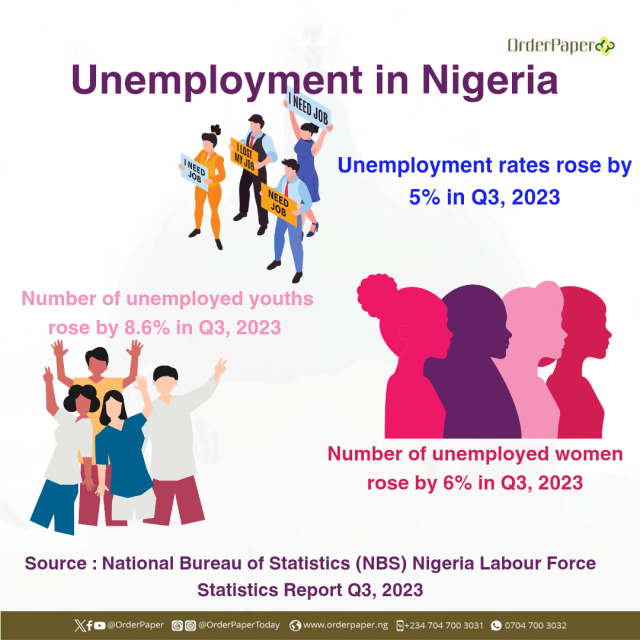With unemployment rates increasing by over 5 per cent, the National Assembly resumed plenary for the week of May 13th to 17th, 2024, to GESI activities centred on reducing unemployment through applying gender-sensitive policies and targeted job creation initiatives. This also extended to addressing the ills of casual labour.

Bringing structure to casualised labour
Casual labourers in Nigeria often face challenges like uncertain job security, as their work is temporary and can end suddenly. They also receive welfare from employees and lack benefits like health insurance and paid leave. Working conditions are mostly tough, with extended hours and unsafe environments. Coupled with limited training opportunities and career growth opportunities, they often face social stigma. GESI-targeted policies help reduce discrimination and provide support services to help casual labourers secure more stable and better-paying jobs.
READ MORE: Reps probe daily increase in prices of commodities
Gender-centred approach to curbing unemployment
Nigeria’s youth population faces high levels of unemployment, with many struggling to find stable and meaningful employment opportunities. This lack of employment affects financial well-being and contributes to frustration, hopelessness, and social disenchantment. Similarly, women in Nigeria face critical challenges in accessing formal employment, often due to cultural norms and limited access to education and skills training.
According to the National Bureau of Statistics (NBS), the unemployment rate for women in the third quarter of 2023 was 6.0%, while the youth unemployment rate was 8.6%.

The impact of unemployment on both youths and women is profound, affecting their ability to achieve financial independence, contribute meaningfully to the economy, and fulfil their potential. This week, the National Assembly began the process of tackling these issues as follows.
GESI FOCUS:
MOTIONS
- Need to Curb the Use of Casualized Labour by Employers of Labour in Nigeria Contrary to the Provisions of Labour Act
- Sponsor: Hon. Fuad Kayode Laguda – Surulere I Federal Constituency, Lagos
Hon. Fuad Kayode Laguda raised a motion addressing the rampant and exploitative practice of casualisation of employment in Nigeria, which contradicts the Labour Act CAP L1 2004’s provision limiting casualisation to three months. Despite this legal restriction, casualisation remains widespread, placing workers in precarious and vulnerable positions comparable to modern-day slavery. Following thorough debate and various proposals, the motion was voted on and referred to the House Committees on Banking Regulations, Banking Institutions, Labour, Employment and Productivity, and Legislative Compliance. This motion seeks urgent intervention to casualised labour practices by employers, ensuring adherence to the Labour Act and safeguarding workers’ rights.
READ MORE: PWD-Senate set to commence full implementation of disability act
- Value Chain Training of Youths and Women on Agribusiness Development to Reduce Unemployment in the Country
Sponsor: Hon. Canice Moore Chukwugozie Nwachukwu – Oru East/Orsu/Orlu Federal Constituency, Imo
The House of Representatives, in debating, recognised that an agri-business value chain training approach targeting youths and women would reduce unemployment and maintain political and social stability. Hence, it highlighted the need for the federal government to embark on massive value chain training for youths and women in agribusiness development. The House also urged the Federal Ministry of Labour and Employment, in collaboration with the National Productivity Centre (NPC) and the National Directorate of Employment (NDE), to devise means to implement such training. In its resolution, the House mandated the Committees on Agricultural Production and Services, Rural Development, Youth Development, and Legislative Compliance to ensure compliance within the shortest possible time.
Adedoyin Adesokan Contributed to this GESI Tracker report from Abuja.



